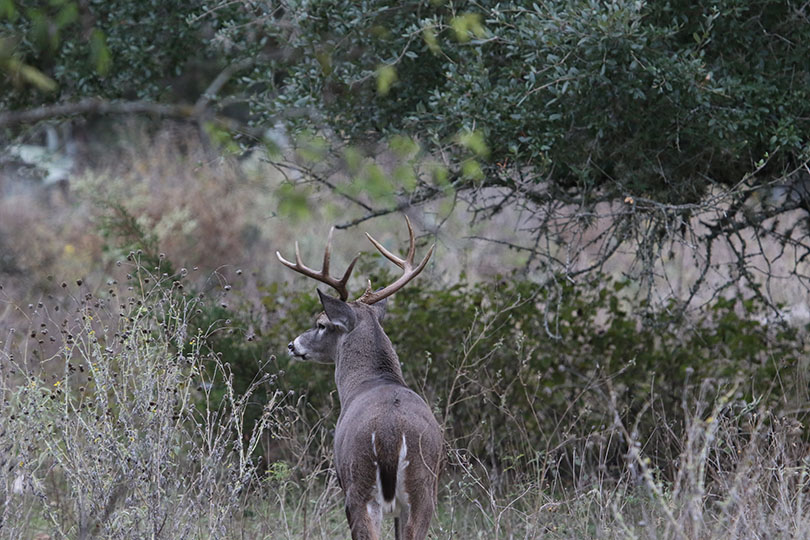By Justin Walker
Communications Specialist
White-tailed deer season is underway in Texas.
Although the season started slow for parts of the state, deer activity has increased, particularly in the Hill Country, according to Alan Cain, white-tailed deer program leader at the Texas Parks and Wildlife Department (TPWD).
“Early on, especially in the Hill Country and South Texas, it was hot and really dry,” Cain said. “In other parts of the state, we had a really good acorn crop. Hunters just weren’t seeing the deer.”
But Cain noted that as Thanksgiving approached, around 300 deer came through the check station near Hondo in a one-week period, a sign of things to come for hunters in the area.
“We are seeing a lot of deer moving in the Hill Country area—Medina, Uvalde, Kerrville,” Cain said. “That area is seeing a lot of deer start to move.”
South Texas may not see quite the success other areas have, Cain said. But as temperatures cool off in the area, hunters will start to see deer numbers increase.
The rest of the state appears to be on schedule compared to previous seasons. Cain also noted that North Texas might be coming off the peak of the season.
Hunters have been receptive and helpful in monitoring chronic wasting disease (CWD). In certain areas of the state, TPWD has implemented mandatory CWD testing requirements.
“Thus far we have had good outreach with hunters in the different parts of the state where we have CWD zones in place,” Cain said. “They have been very helpful in brining deer into the testing stations.”
Cain said hunters should expect their CWD test results within two to three weeks, but turnaround time could take up to four weeks with a rising number of samples.
Hunters who harvest mule deer, white-tailed deer, elk, red deer or other CWD-susceptible species within the Trans-Pecos, Panhandle and South Central Texas CWD Containment and Surveillance Zones are required to bring their animals to a TPWD check station within 48 hours of harvest.
TPWD also urges voluntary sampling of hunter-harvested deer outside of these zones.
Hunters should also be aware of rules banning importation of certain deer, elk and other CWD-susceptible species carcass parts from states where the disease has been detected, as well as the movement of the same carcass parts from CWD zones. The rules are part of the state’s comprehensive CWD management plan to determine the prevalence and geographic extent of the disease and to contain the disease to the areas where it is known to exist.
More information about CWD management and regulations for hunters is available at www.tpwd.texas.gov.

